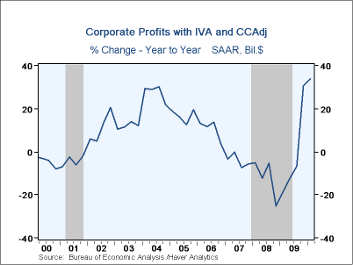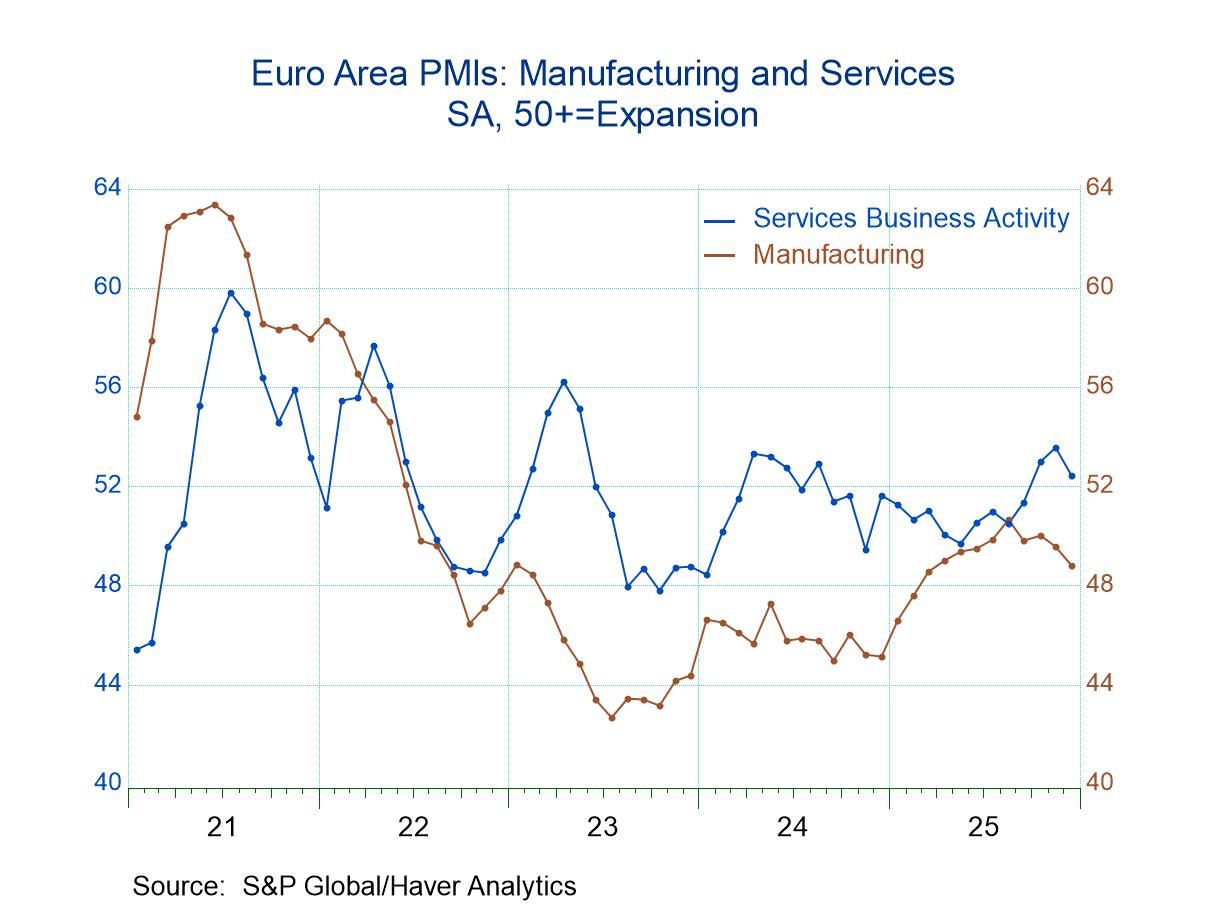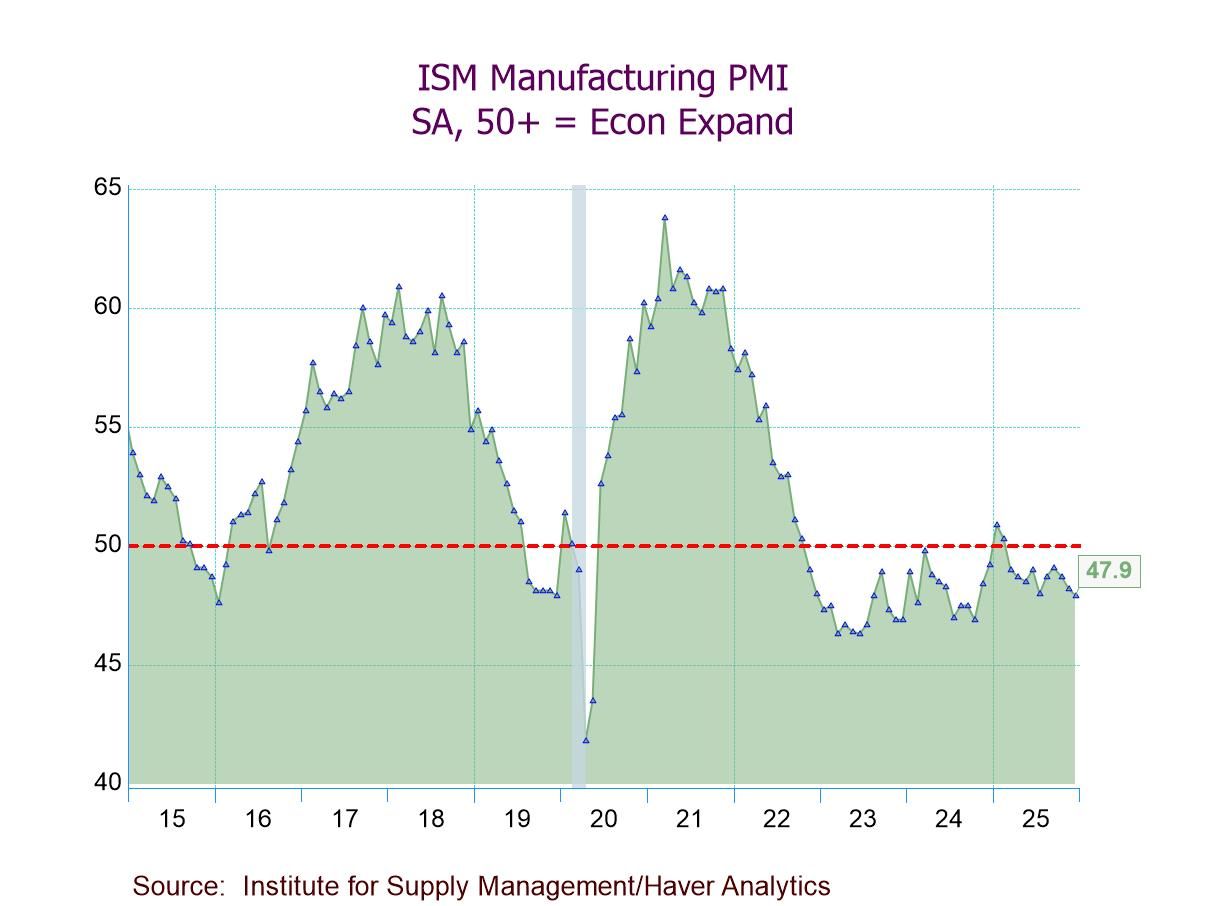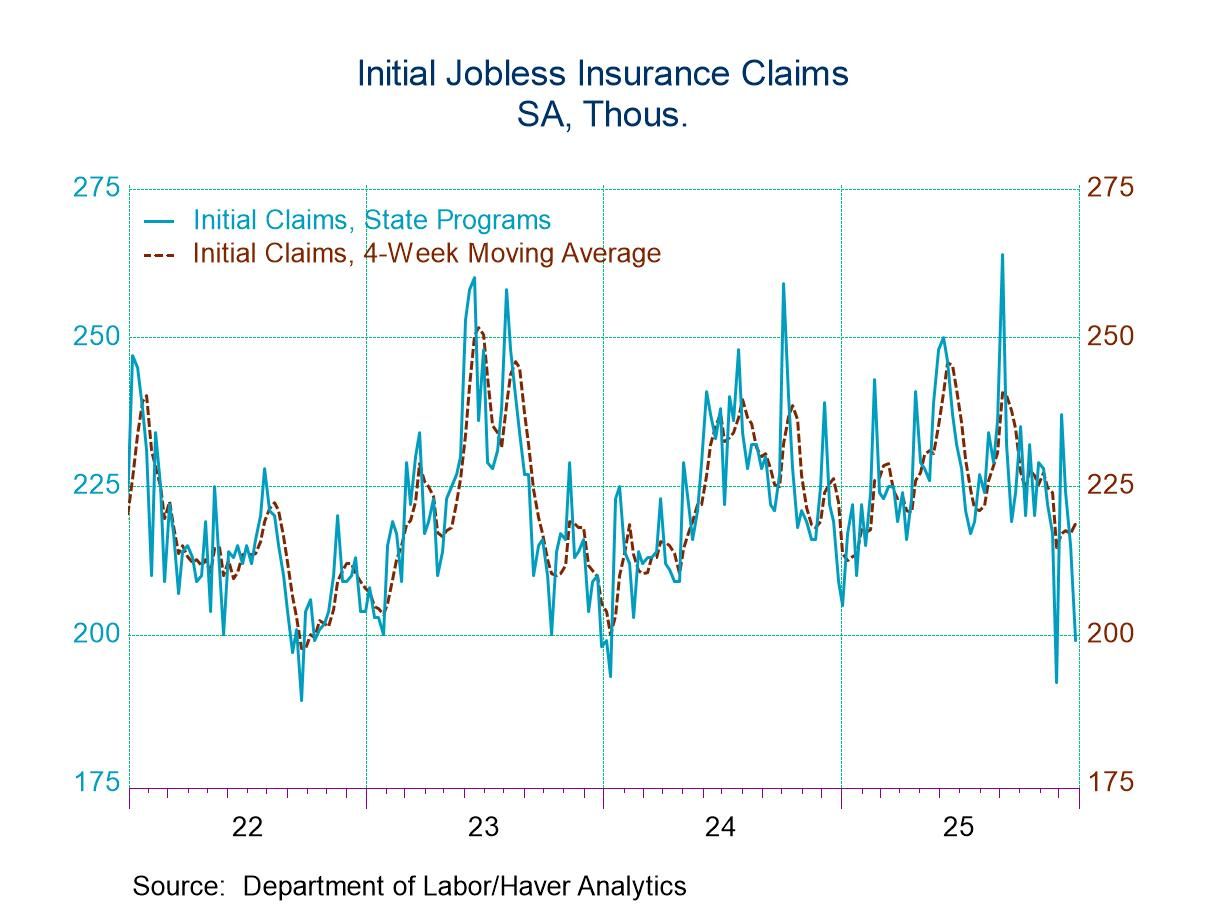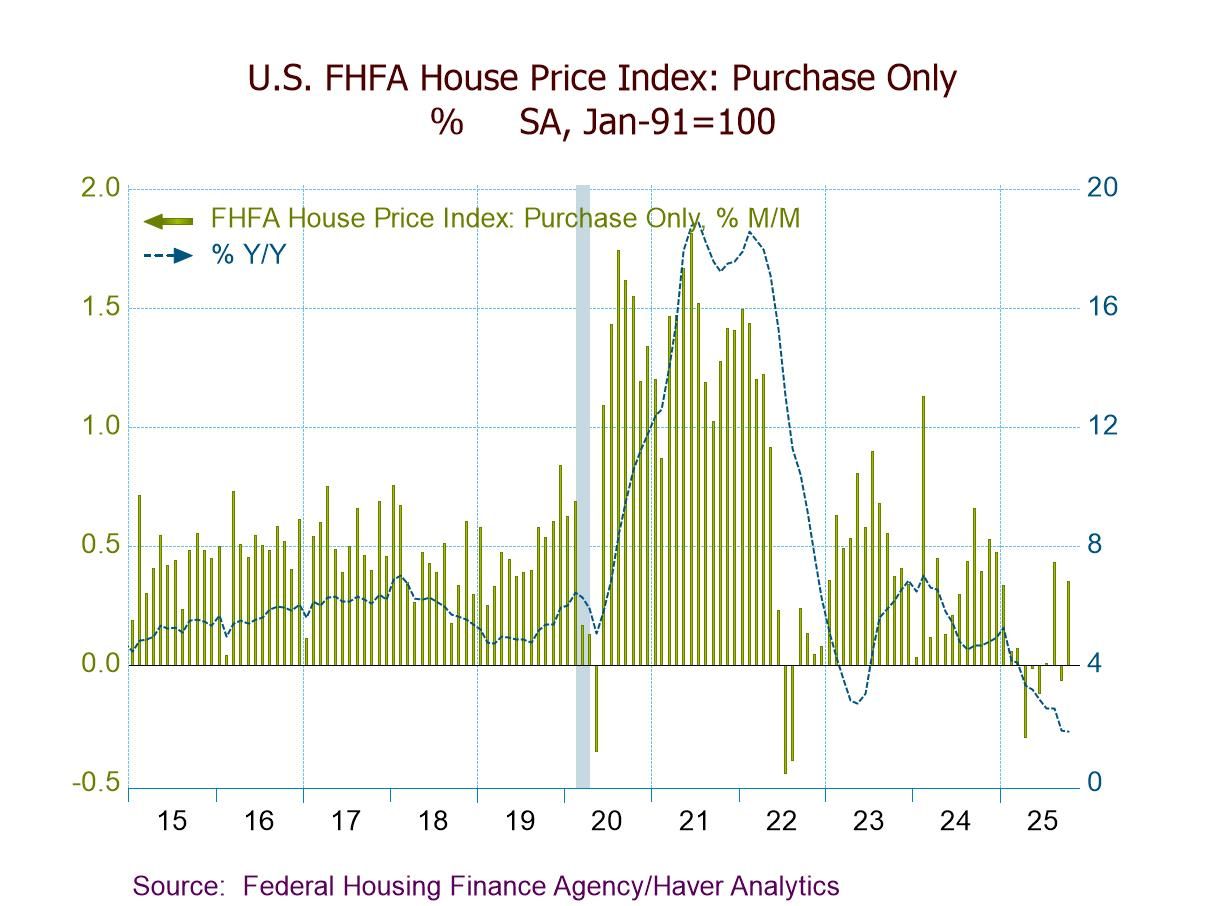 Global| Jun 25 2010
Global| Jun 25 2010U.S. GDP Growth Is Revised Weaker But Corporate Profit Growth Is Strengthened
by:Tom Moeller
|in:Economy in Brief
Summary
For the second time, 1Q '10 real GDP growth was revised slightly lower. The latest 2.7% figure compares to 3.0% estimated last month and 3.2% in the advance report. A lessened rate of growth in domestic final demand was behind the [...]
For the second time, 1Q '10 real GDP growth was revised slightly lower. The latest 2.7% figure compares to 3.0% estimated last month and 3.2% in the advance report. A lessened rate of growth in domestic final demand was behind the revision and that owed mostly to lowered growth in personal consumption and business fixed investment. Consensus expectations had been for no revision to the 3.0% growth estimated last month. Regardless, 1Q remained the third consecutive quarter of positive growth after the recession when GDP fell a postwar-record 3.7% peak-to-trough. Growth of roughly 3.0% for 2Q is widely forecast.
Like in last month's GDP report, the largest piece of the downward revision was a reduced rate of growth in business fixed investment to 2.2%. Growth in personal consumption also was reduced to 3.0% and residential investment growth was lowered to -10.3%. Finally, revisions to the contributions from foreign trade and inventories were roughly offsetting.
Price inflation was nudged up again to a still-low 1.1% as measured by the chained GDP price index. The y/y gain of just 0.5% remained the lowest since the early-1950s. The personal consumption chain price index rose a little-revised 1.6% but the 2.0% year-to-year gain was the quickest since 2008. The price index for fixed business investment fell 1.8% (-3.1% y/y), the fifth consecutive quarterly decline, but the residential investment price index rose for the second consecutive quarter (-1.2% y/y).
Productivity growth remains strong. Corporate profit growth was strengthened to 8.0% (34.0% y/y) from 5.5% for the sixth increase in the last seven quarters. Profits of U.S. nonfinancial companies were strengthened to 10.7% (31.3% y/y). The annual increase was the strongest since 2004. Financial sector profits grew a little-revised 2.7% (78.8% y/y) while profits from abroad grew a lessened 8.5% (5.5% y/y).
| Chained 2005$, % AR | 1Q '10 (Final) |
1Q '10 (Prelim) |
1Q '10 (Adv) |
4Q '09 |
3Q '09 |
1Q Y/Y | 2009 | 2008 | 2007 |
|---|---|---|---|---|---|---|---|---|---|
| GDP | 2.7 | 3.0 | 3.2 | 5.6 | 2.2 | 2.4 | -2.4 | 0.4 | 2.1 |
| Inventory Effect | 1.9 | 1.7 | 1.6 | 3.8 | 0.7 | 1.2 | -0.7 | -0.4 | -0.4 |
| Final Sales | 0.8 | 1.4 | 1.6 | 1.7 | 1.5 | 1.2 | -1.7 | 0.8 | 2.5 |
| Foreign Trade Effect | -0.8 | -0.7 | -0.6 | 0.3 | -0.8 | 0.1 | 1.0 | -1.2 | 0.8 |
| Domestic Final Demand | 1.6 | 2.0 | 2.2 | 1.4 | 2.3 | 1.1 | -2.7 | -0.4 | 1.7 |
| Personal Consumption | 3.0 | 3.5 | 3.6 | 1.6 | 2.8 | 1.6 | -0.6 | -0.2 | 2.7 |
| Business Fixed Investment | 2.2 | 3.1 | 4.0 | 5.3 | -5.9 | -2.2 | -17.8 | 1.6 | 6.2 |
| Residential Investment | -10.3 | -10.7 | -10.9 | 3.7 | 18.9 | -4.0 | -20.5 | -22.9 | -18.5 |
| Government Spending | -1.9 | -1.9 | -1.8 | -1.3 | 2.7 | 1.5 | 1.8 | 3.1 | 1.7 |
| Chained GDP Price Index | 1.1 | 1.0 | 0.9 | 0.5 | 0.4 | 0.5 | 1.2 | 2.1 | 2.9 |
Tom Moeller
AuthorMore in Author Profile »Prior to joining Haver Analytics in 2000, Mr. Moeller worked as the Economist at Chancellor Capital Management from 1985 to 1999. There, he developed comprehensive economic forecasts and interpreted economic data for equity and fixed income portfolio managers. Also at Chancellor, Mr. Moeller worked as an equity analyst and was responsible for researching and rating companies in the economically sensitive automobile and housing industries for investment in Chancellor’s equity portfolio. Prior to joining Chancellor, Mr. Moeller was an Economist at Citibank from 1979 to 1984. He also analyzed pricing behavior in the metals industry for the Council on Wage and Price Stability in Washington, D.C. In 1999, Mr. Moeller received the award for most accurate forecast from the Forecasters' Club of New York. From 1990 to 1992 he was President of the New York Association for Business Economists. Mr. Moeller earned an M.B.A. in Finance from Fordham University, where he graduated in 1987. He holds a Bachelor of Arts in Economics from George Washington University.



